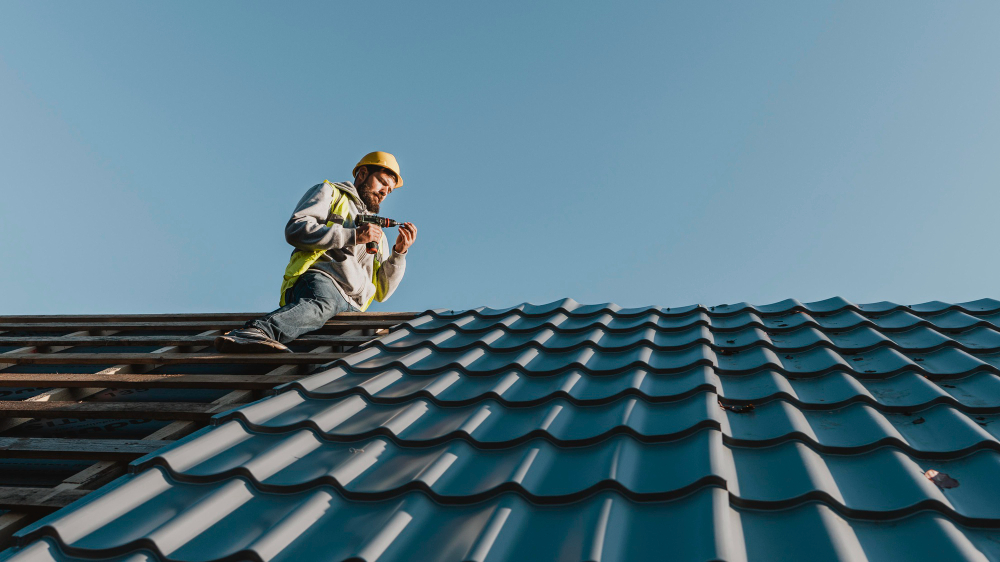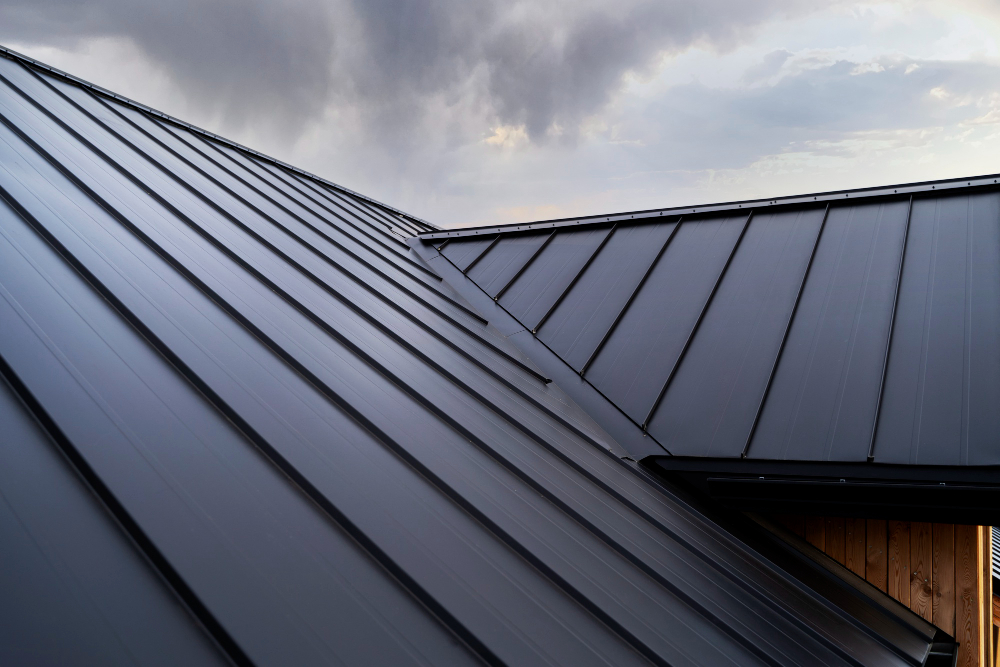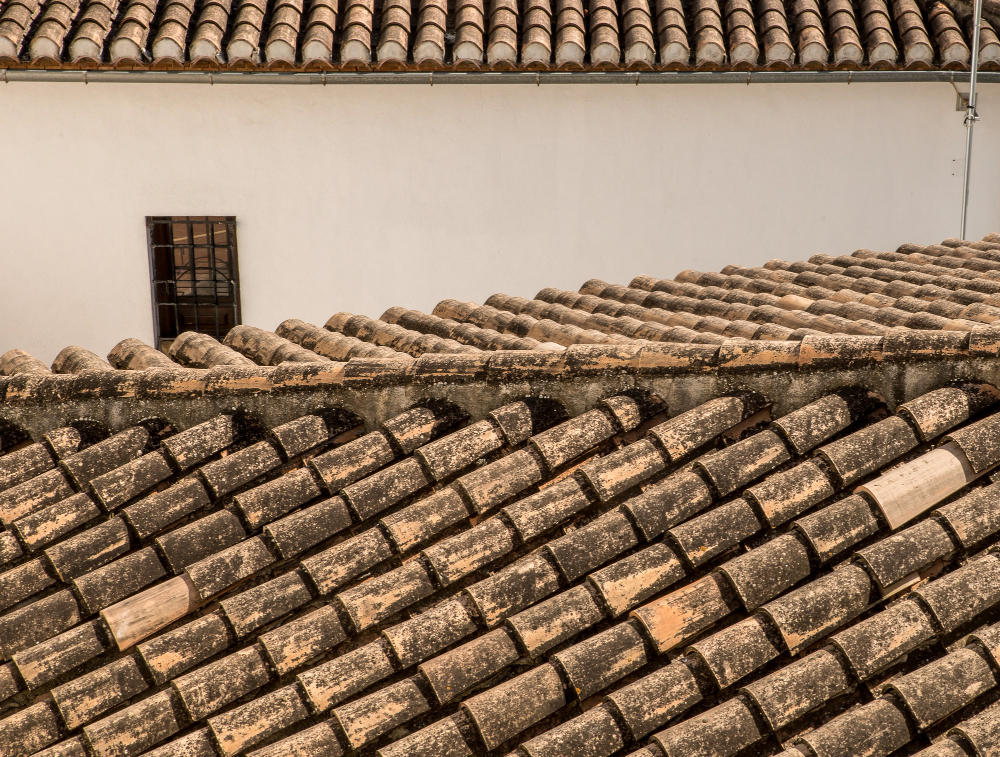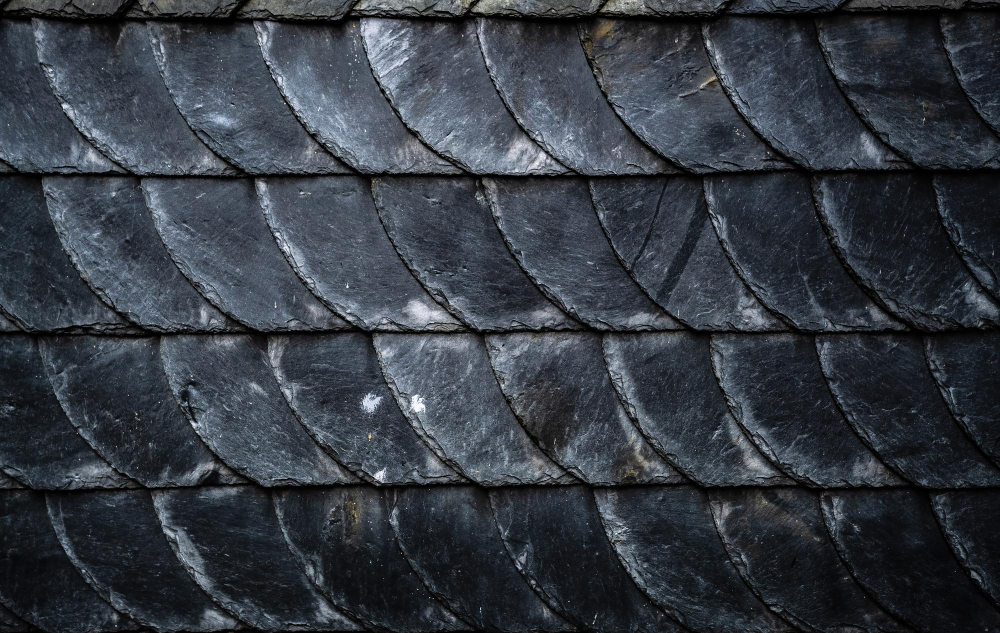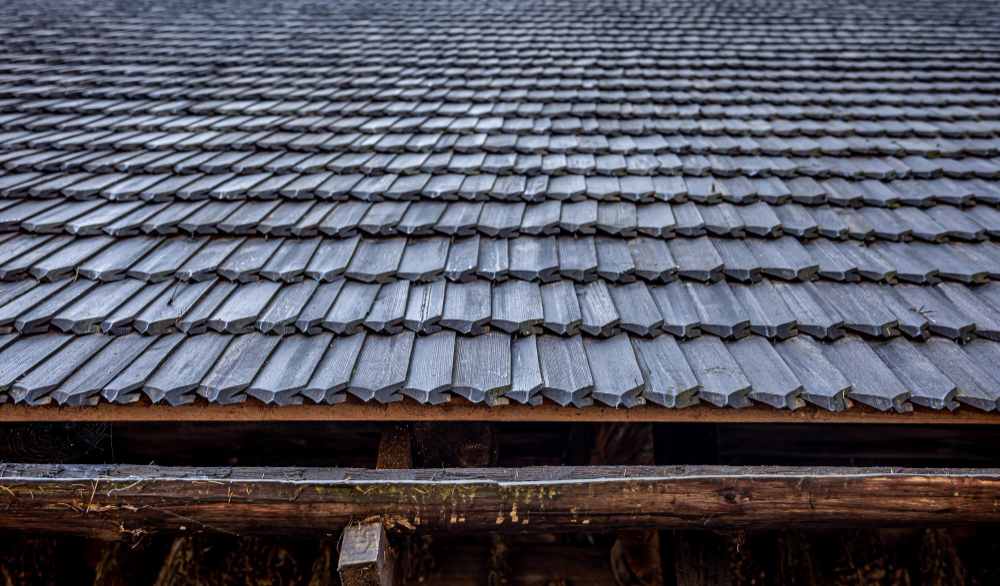As a construction professional with over a decade of experience, I understand how crucial it is to choose the right roofing material. Roofing materials come in several options, which can make it hard for homeowners or people wanting to work on any kind of construction project to make an informed decision. There are so many things to consider, including cost, longevity, and maintenance demands. I am here to share what I have experienced, having interacted with so many options. But for today, I will only discuss five options. These are:
- Asphalt shingles
- Metal
- Clay tiles
- Wooden shakes
- Slate
Background
With over a decade of work experience as a roofing contractor, I have undertaken several projects that required a careful analysis of roofing materials before coming to a conclusion of which one to use. I have undergone several roofing training programs that have increased my proficiency in the installation of different roofing materials, emphasizing the importance of long-term review and real-world experience. I have also undertaken several safety programs to mitigate risks and hazards, including professional roofing waste removal. I am very keen on avoiding incidences such as falls, trips, and slips, which can be life-threatening.
Additionally, I am a licensed contractor with the relevant certifications, to ensure compliance with the set standards and regulations. It has taken me years of training to be able to understand how to handle even the most complex roofing projects.
Material Overview and Personal Encounters For Each Roofing Material
Choosing the right roofing materials is crucial, as it not only determines the curb appeal of the final project but also maintenance cost and durability in the long run. Each material has its advantages and disadvantages, and understanding this comes in handy when deciding on what to go for. Here is a roofing materials comparison of 5 common options:
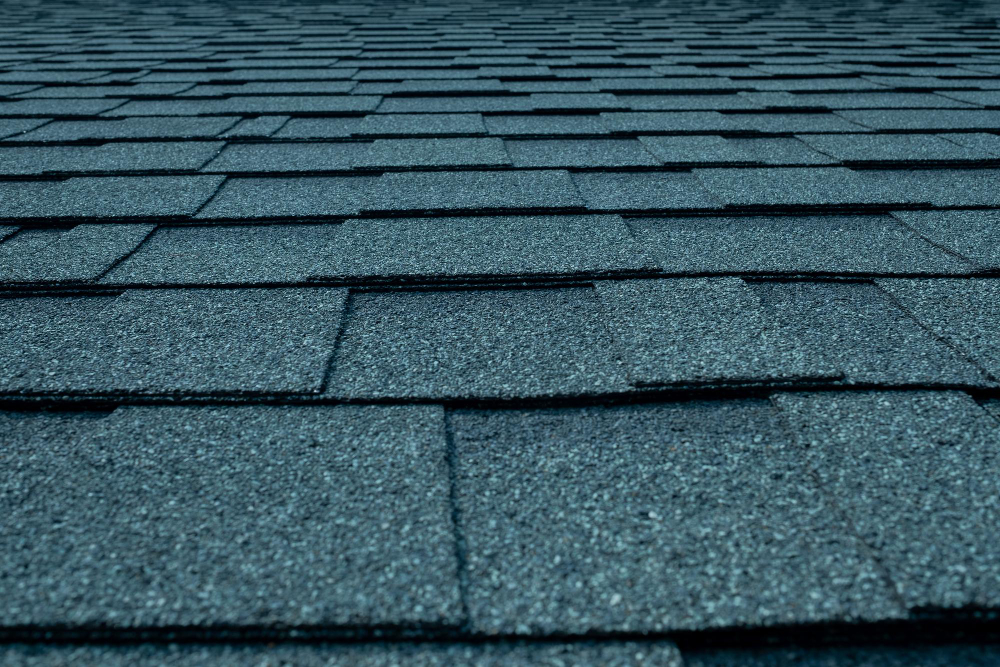
Asphalt shingles
- Initial impressions and expectations
Asphalt shingles are a common roofing material due to their low cost, versatility, and ease of installation. From texture, color, and patterns, you will be spoilt for choice when you choose them. Although many people go for the most neutral colors, you will also find colorful ones such as red and purple. - Real-world performance
On average, the cost of asphalt roofing materials ranges between $1.71-$15 per square foot, with prices differing depending on the type of shingles and complexity of a roof. Although the costs are lower than other roofing materials and are easy to install, they are not very durable, especially in areas susceptible to extreme weather conditions such as temperature fluctuations. 10 years after installation, you may start noticing significant wear, with the shingles developing cracks and brittles. After 30 years, replacement is usually the only option, especially when the cracks have spread widely. I remember an instance where a client opted for asphalt shingles in the name of saving some money. After a few years, we had to replace them due to recurring granule loss issues and water infiltration whenever there were significant rainstorms. Asphalt shingles are able to withstand moderate weather conditions such as wind and rain, but get damaged by large hailstones, strong winds and heavy storms. - Maintenance and upkeep
To keep asphalt shingles in good condition and increase their longevity, you need to always check if there are damaged shingles and replace them. I also suggest regular cleaning. I always advise my clients to ensure their roofs are free of debris and pools of water at any given time. - Costs revisited
Although installing asphalt shingles is inexpensive, you may incur high maintenance costs especially if you live in areas prone to susceptible weather conditions. It may seem like you are saving money when installing them, while in real sense, you will incur more in repair and replacements in the long run. - Final thoughts
Asphalt shingles are a great choice for people looking for budget-friendly roofing solutions. However, I’d advise you to choose another roofing option if you live in an area prone to temperature fluctuations as maintenance costs may outweigh the initial cost savings. Keep in mind that most of these materials will last for 15-30 years, depending on the installation procedure, level of maintenance, and climatic conditions.
Metal
- Initial Impressions and Expectations
I have chosen metal roofing in instances where clients need durable roofing options that would serve them for years. Roofing renovations are not cheap, and many clients opt for metal roofing with the hope that they won’t need to incur renovation costs in the near future. These materials cost an average of $1-$7 per square foot, depending on the type of metal used. - Real world performance
I can confidently say that metal roofing did not disappoint when it comes to real world performance. I have seen them last for several years without developing major issues, even in areas with extreme temperature fluctuations, with little maintenance. You can expect your roof to last for 50-100 years, depending on the quality of installation and maintenance. They will start showing signs of aging 20 years after installation such as paint fading, but without major issues. After 50 years, they will still be in good shape, requiring only repairing minor corrosion. For people living in areas affected by frequent strong winds, heavy rain, temperature fluctuations, and heavy rain and snow, I can recommend the use of metal roofing materials. - Maintenance and upkeep
Maintaining metal roofing is simple. Just ensure they are free of dirt, tree branches, and any kind of debris with the help of professional roofing waste removal services. Such debris will cause rusting when it accumulates. Also, ensure they are inspected frequently. Regular inspection ensures that any issues such as water leaks and corrosion are noticed and fixed on time. - Costs revisited
Although it is expensive to install metal roofing compared to asphalt shingles, you will save money in the long run since they will serve you for decades. Also, you will not incur high repair costs, if you maintain them properly. - Final thoughts
Overall, metal roofing materials have surpassed my expectations over the years. They will stay in good shape for several years, and won’t require frequent repairs or replacement. If you are looking for a roofing option that does not require a lot of maintenance, is durable, and will last long, I highly recommend them.
Clay Tiles
- Initial Impressions and Expectations
Most people prefer clay tiles due to their old-world beauty, but they come with other benefits too. They are durable, lasting for 50- 100 years when properly installed and maintained. They are also aesthetically pleasing and available in a variety of styles including French, Mediterranean, mission, and interlocking shingles. Clay tiles cost between $3 and $8 per square foot. - Real world performance
Clay tiles don’t disappoint when it comes to durability and longevity. Also, they don’t have high maintenance demands. They also provide excellent insulation and ventilation, which is the main reason I usually recommend them to people living in areas with extreme temperature fluctuations. However, they are very heavy, and we have had to reinforce some buildings before installing a clay roof. Also, they are very expensive compared to other roofing options such as asphalt shingles. 10 years after installation, clay tiles are usually still durable, with very minimal maintenance needed. After 50 years, they will still be in good condition, but with minor issues, especially cosmetic ones. At this point, the roof will still have more decades to go. Clay tiles perform well even areas with unfavorable weather conditions such as heavy rains, extreme temperatures, hail and wind. - Maintenance and upkeep
Clay tiles are also not demanding when it comes to maintenance, just like metal roofing. They require periodic cleaning to clear any debris and moss growth. Also, regular inspection is important, to check for damages such as cracks. - Costs revisited
Clay tiles are more expensive than asphalt shingles and metal roofs. However, the cost is justifiable since they are more aesthetically pleasing, have low maintenance demands, and are resistant to pests and unfavorable weather conditions. - Final thoughts
Clay tiles are a suitable option if you are looking for a roofing solution that offers longevity, low maintenance costs, and is pleasing to the eye. However, be ready to dig deeper into your pockets.
Slate
- Initial Impressions
I have always chosen slate for its natural, luxurious appearance, durability, and watertight properties. It also withstands extremely hot temperatures. It is also a good option for historic projects due to its natural beauty. It will cost you $7-$12 per square foot to buy slate roofing materials. - Real world performance
Slate roofing was able to withstand extremely high temperatures without developing damages such as cracks. 10 years after installation, the roof had maintained its appearance and durability. Very minor wear may be noticeable after 20 years. At 50 years, the roof will still be in good condition, and will last for several extra decades without the need for replacement. It also lasted for years, exceeding its longevity expectations. Additionally, its watertight properties are excellent. It was able to prevent water penetration even in areas with very heavy rainfall. With good upkeep, a slate roof will last for an average of 100 years. - Maintenance and upkeep
Maintenance for the slate roof was minimal, the main one being inspection for loose or damaged tiles. It also requires frequent cleaning to get rid of debris and prevent the growth of mold and algae. - Costs revisited
Just like clay tiles, installing a slate roof is expensive. However, you will save a lot of money since major repairs are rare, and the maintenance costs are low. - Final thoughts
The durability and aesthetic appeal of slate roofing make them suitable for clients who need a roofing material that will serve them for decades, while also offering elegance to their properties. At the same time, the initial costs for installation are high. The peace of mind and low maintenance costs that come with slates are unmatched.
Wooden shakes
- Initial impressions and expectations
I have chosen wooden shakes due to their natural insulation properties, natural beauty, and resistance to wind damage. On average, these roofing materials cost $4-$7 per square foot. - Real world performance
Wooden shakes proved to be excellent, but only in areas with moderate weather. In areas with heavy rainfall, these roofing materials develop decaying and damage, since they tend to absorb moisture. Also, they were not resistant to pests, and fungal growth. However, you can prevent rotting and attack by pests by frequent wood treatment. Also, they are flammable. Wooden shakes have a lifespan of 20- 40 years. 5 years after installation, they develop some minor wear which becomes significantly apparent after 10 years. After 30 years, you may need to replace some shakes and replace the entire roof once it hits 40 years. Wooden shakes resisted moderate wind and rain but got damaged from severe weather including strong winds and heavy storms. - Maintenance and upkeep
Maintaining a wooden shake roof is demanding. You will need to frequently treat the wood to avoid decay and pest infestation. If decay happens, you may incur heavy replacement costs. - Costs revisited
The need to maintain wooden shake roofs means that you will incur high costs in the long run. They require frequent inspection, treatment, repair, and replacement if you are to maintain the structural integrity of your property. - Final thoughts
Wooden shakes offer a natural charm to a building. However, if you don’t want to incur high maintenance costs, I’d suggest you consider another roofing material. Additionally, if your area receives higher than average rainfall, they may not be a good option, since they absorb moisture that can lead to premature decay.
Comparative insights
After considering client feedback and conducting a comparative analysis, I can confidently say that there is no one-size-fits-all roofing solution. Although metal roofing, slate, and clay tiles offer longevity and durability, they come at a high cost. Asphalt shingles are affordable but come with high maintenance demands. They may not last long, especially in areas with extreme weather conditions.
Wooden shakes are friendly to the environment but tend to lose their integrity over time, especially in areas with heavy rains. By considering the pros and cons of every option, homeowners can comfortably make a decision. They can find a balance among cost, aesthetics, durability, and maintenance demands.
Lessons learned
As a roofing contractor with over a decade of experience, I’d advise anyone intending to put up a construction project to assess relevant factors before choosing a specific roofing material. Start by factoring in environmental conditions and structural requirements.
Also, ensure that you work with reputable suppliers and experienced building contractors. They will guide you to choose the best option.
Contributed Experiences
Working together with other experienced building contractors and getting feedback from homeowners has helped me understand the properties of various roofing materials. By using this collective experience, I can confidently guide my roofing clients to make informed decisions and get value for their money.
By coming together to share insights and experiences, we can educate each other and deliver excellent results for our clients.
Conclusion
When choosing a roofing material for your project, make careful considerations to ensure you choose the best option. With my real world experience In the construction industry, my advice for clients is to consider each option at a time and analyze its pros and cons, before concluding. By doing so, it’s possible to get a solution that not only meets expectations but exceeds them.

